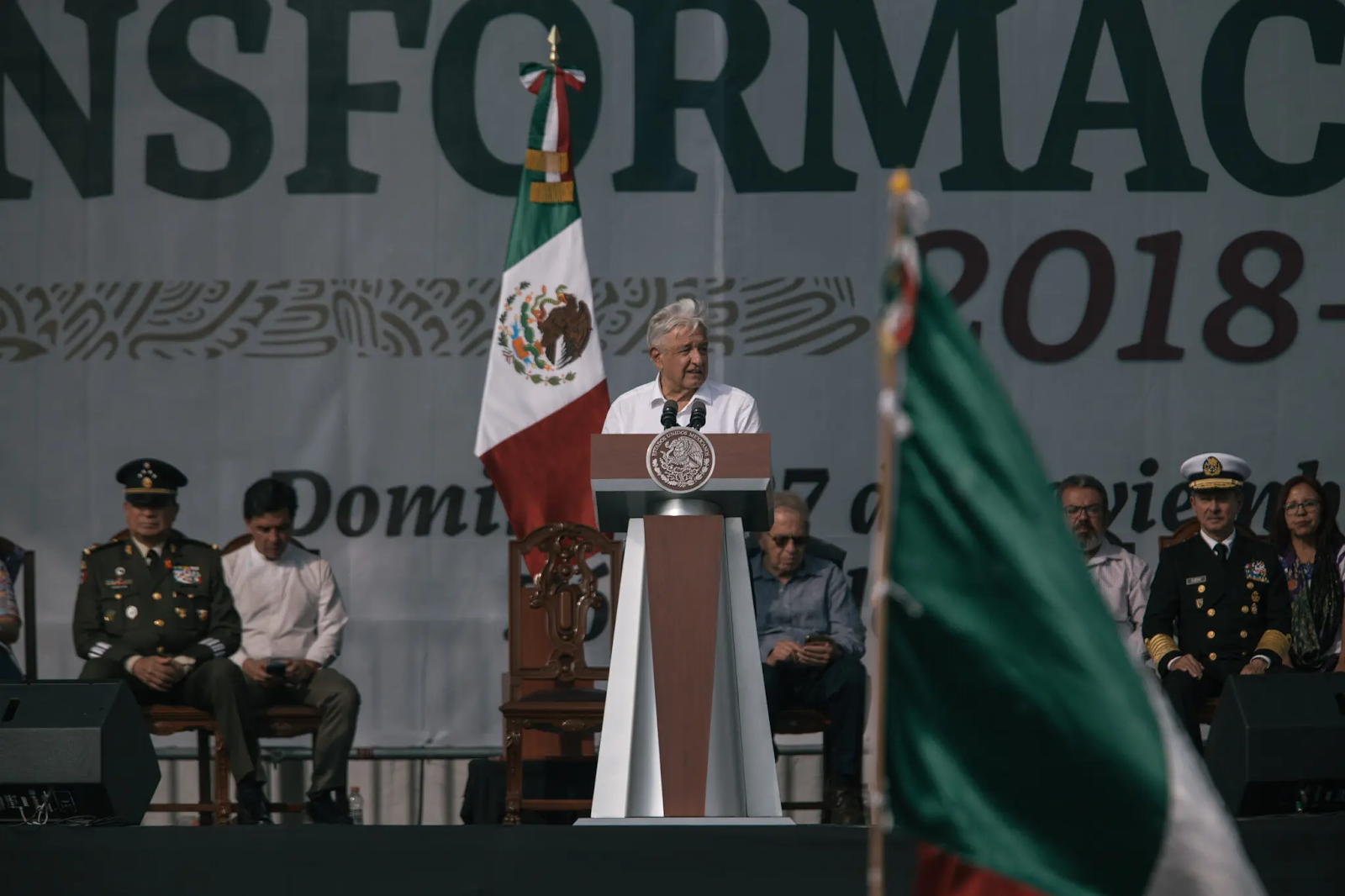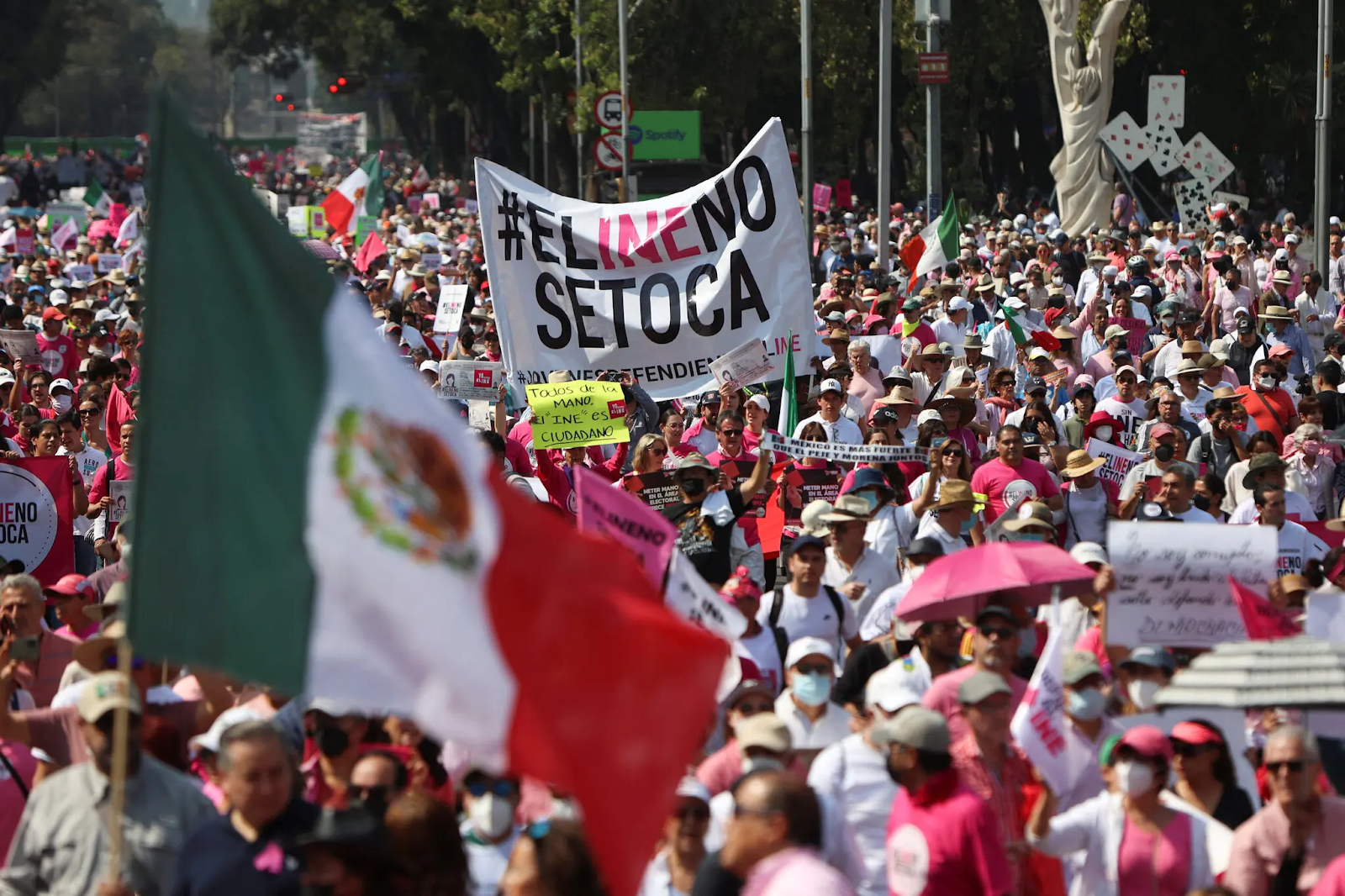Mexico’s Congress Curtails Election Agency’s Authority
President López Obrador has supported the reforms to the electoral agency. Photo: Luis Antonio Rojas/The New York Times
Mexico’s Congress approved a bill targeting the Instituto Nacional Electoral (INE), the country’s election agency. It will reform the agency by cutting its funding and therefore its staff, limiting its autonomy over policies and budgeting, and restricting its role in disqualifying candidates that violate electoral law.
This prompted protests on Sunday, but the bill had already been passed, and is on its way to President Andrés Manuel López Obrador’s desk, who was a major proponent of the changes.
The INE is an electoral watchdog that oversees voting in Mexico. They have a wide range of duties, including setting up and running the polling stations, monitoring campaign funds, and registering voters. They are a well-known and trusted organization, and have played an important role in safeguarding the public’s trust in the electoral system. They were partially responsible for ending one-party rule in the 2000 presidential election.
Unfortunately, the current president disfavors the agency, and his Morena Party controls Congress, which is the institution taking action against the INE. President López Obrador, nicknamed AMLO, claimed that this reform will save money, combat a bloated bureaucracy, diminish corruption, and make voting easier for Mexicans abroad. He has highlighted the amount of money that will be saved, which is significant for his program of fiscal austerity, considering that the agency’s budget was $765 million this year.
Nevertheless, the INE has a crucial job, and one that they may no longer be able to complete effectively. The current projections claim that professional staff will be cut by 85 percent due to a lack of funding. This will lead to a severe lack of manpower for actually organizing and running the elections. Many polling stations may not operate in the next elections, which could prevent people from being able to vote.
Demonstrators protest against proposed constitutional reforms in November. Photo: Luis Cortes/Reuters
The presidential election is coming up in 2024, which casts doubts on the political purposes of the reform. Nevertheless, AMLO is still very popular, with an approval rating above 60 percent, and his party is ahead in the polls. This move against the INE is, then, not just a strategic attempt to get ahead but also the consequence of a more personal grudge.
In fact, AMLO had already proposed constitutional changes to the electoral system last year, but protests in November caused the lower house of Congress to block them in December. This bill is actually a “Plan B” to cripple the institution without removing it completely, which had required a two-thirds majority in Congress.
This grievance comes from the 2006 presidential election, where AMLO lost after a very close race. He made accusations of voting fraud, blamed the INE without evidence, and led protests in the capital. He lost again, in 2012, and has been perpetuating these claims ever since. These conspiracy theories echo the sentiments of Presidents Trump and Bolsonaro of the US and Brazil, respectively.
AMLO won the 2018 presidential election, but did not put the INE as a priority until 2021, when the agency disqualified two of his party members from competing in elections after their campaign funding had small discrepancies. This sparked the president's disdain and he denounced the agency, claiming that it was “rotten” and “undemocratic.”
Criticism has come from a variety of sources, mainly focused on how these reforms might weaken a key institution of democracy. The free and fair elections that the INE promises are under threat. Most importantly, it could reduce the trust that the public has in Mexico’s election results by undermining the legitimacy of the process. Moreover, Congress appoints INE members, and will soon be choosing four out of the eleven members, and Morena Party’s control over the legislature has political implications.
The current director of the INE, Lorenzo Córdova, has spoken out against the reforms. “It is a very clear political strategy, to sell the INE as a biased, partial authority. What is our dilemma as an authority? How do we handle it? If we say nothing, publicly, we are validating the president’s statements,” he said. He has defended his institution in many interviews and press conferences, but he himself will be leaving office in April, after his term ends.
The bill has already passed, so the next step in its new life will be the Supreme Court, which will likely hear a challenge soon by an opposition that claims it is unconstitutional.
Whether the reforms will go through or end in the judicial system is yet to be determined.


